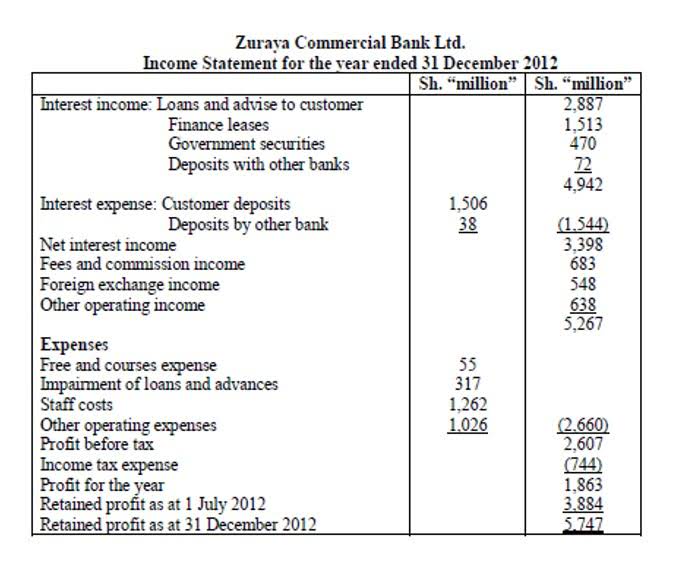Creel & Associates Inc Oilfield Revenue Accounting Houston, TX

This involves not only the initial acquisition costs but also the ongoing evaluation of asset performance and potential impairments. Revenue recognition in the oil and gas industry is a critical aspect of financial reporting due to the unique nature of extraction activities. Companies must adhere to specific guidelines to accurately report revenue, taking into account the various stages of production and the complex contracts AI in Accounting often involved. The oil and gas industry operates within a complex financial framework, where precise accounting practices are essential for accurate reporting and decision-making.
- As the industry continued to evolve, so did the complexities of its financial reporting requirements.
- Revenue is typically recognized when control of the product is transferred to the customer, which may occur at different points depending on the terms of the sales contract.
- This transparency helps stakeholders make informed decisions and enhances the company’s credibility in the market.
- These two governing bodies have yet to find the ideological common ground needed to establish a single accounting approach.
- You need the capability to both summarize and dynamically drill into the details of WPR and LOS.
Avoid Oil and Gas Accounting Issues with W Energy
Estimates of reserves for individual properties may not reflect the same level of confidence as estimates of reserves for all properties, due to the effect of aggregation. One of the key aspects of joint venture accounting is the use of joint interest billing (JIB) statements. These statements provide a detailed breakdown of costs incurred and revenues generated, which are then allocated to each partner based on their ownership percentage.

Staying compliant with industry regulations
- In the realm of Oil and Gas Accounting, case studies are invaluable for understanding the complexities involved in specialized financial reporting for extraction industries.
- The results of that study resulted in the development of a single certification exam (effective January 1, 2016) covering five content domains that were determined to be essential for competent practice as a petroleum accountant.
- Find out how your organization can leverage IRA energy tax credits to save as much as 50% or more on qualifying project costs.
- For instance, a contract might stipulate that revenue is recognized when the oil is delivered to a storage facility, rather than when it is extracted from the ground.
- Certain services may not be available to attest clients under the rules and regulations of public accounting.
- Cost management in oil and gas accounting is crucial due to the industry’s high capital expenditures and complex financial structures.
Charge them all off at once (Expense them), or over the life of the well (capitalization to depreciation/amortization)? If you capitalize them, you do now know how long to charge off the expense, as there is no way to know the complete recoverable reserves. We provide you with dependable, cost-effective solutions to reduce your overhead and effort spent managing day-to-day accounting tasks. With decades of oil and gas industry experience, we work with you to build a customized plan to meet your business needs and maximize profits. Our state oil and gas accounting and local tax services professionals offer specialized expertise to help businesses and individuals understand increasingly complex state and local tax rules. During an evolving energy landscape, traditional oil and gas enterprises continue to be pivotal to both the U.S. and global economies.
Key Principles of SPE Accounting
For oil and gas companies, efficiency means spending less time on manual processes and more time focusing on profitability and growth. Ramp helps oil and gas businesses achieve this by automating routine accounting tasks, offering real-time data syncing, and enabling easy integration. Enertia Software is best for upstream oil and gas companies that need an integrated accounting and management solution to streamline operations and improve efficiency. QuickBooks Online works well for small and mid-sized oil and gas companies, including independent producers, oilfield service providers, and equipment rental businesses. It’s a good choice for businesses that need affordable, easy-to-use accounting software that integrates with other industry tools.

Specialized Production Entity (SPE) accounting ensures companies maintain transparency and compliance with regulatory standards, addressing the unique financial challenges faced by companies in this sector. Understanding the unique terminology and principles in oil and gas accounting is fundamental for anyone involved in the industry. One of the primary concepts is the distinction between upstream, midstream, and downstream activities.

The APA® certification process
It is ideal for businesses requiring detailed financial tracking, budget management, and resource optimization across high-value, multi-location projects. Deltek is a project-based management software designed for the energy, oil, and gas industries. It helps companies manage the complexity of large-scale projects with tools for budgeting, resource management, and scheduling. Deltek enables businesses to streamline project execution, optimize resource use, and maintain financial control across multiple project phases. Oil and gas companies work with land records, production data, and engineering reports. If accounting software doesn’t sync with these systems, businesses end up manually entering data and risking mistakes.
A central principle of SPE accounting involves the recognition and measurement of exploration and evaluation expenditures. These costs precede the development phase of oil and gas projects, and appropriate accounting treatment ensures expenditures are capitalized only when specific criteria are met, as stipulated by standards like IFRS 6. This prevents the inflation of asset values by ensuring costs are directly attributable to finding specific reserves. In the oil and gas industry, understanding the various types of online bookkeeping costs is essential for accurate financial management and reporting. These costs are generally categorized into exploration, development, and production costs, each with its own accounting treatment and implications. Stakeholders rely on financial statements to assess the financial health of oil and gas companies.

The financial reporting for oil and gas companies must account for various forms of taxation, including severance taxes, property taxes, and income taxes. Course DescriptionOil and gas operations have some of the most unique accounting issues found in any industry. Oil & Gas Accounting delves into acquisition, exploration, development, and production activities, covering many industry-specific accounting issues. Adherence to financial reporting standards is paramount in the oil and gas industry, given the sector’s complexity and the significant financial stakes involved.







